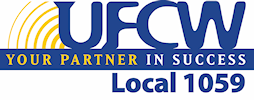AUTHORIZATION CARD: A form voluntarily signed by an employee asking the Union to represent her/him for the purpose of getting a contract.
BARGAINING UNIT: A group of employees in a given work place who have common interests in gaining a contract with their employer. The bargaining unit is usually defined by the National Labor Relations Board.
CAMPAIGN: Usually used to describe a specific organizing effort, site, and time frame.
ELECTION: The official voting process that the National Labor Relations Board conducts to determine if employees want a union.
EXCELSIOR LIST (E-LIST): The list of current employees whose names and addresses the employer must provide to the National Labor Relations Board, which then provides it to the Union at least 10 days prior to the election date.
HAND BILLING: Distribution of union literature, either to workers at a specific store/plant, company headquarters, or to the public
HOME CALLS: When organizers, members, and/or volunteers visit the workers that are attempting to join the Union. It gives organizers an opportunity to discuss the Union, the election process, the tactics management will use to try to stop their efforts, as well as answer questions in a relaxed atmosphere.
JURISDICTION: A specific industry, craft, or geographical area in which a union is charted to organize.
LEAD: Contact information given to an organizer about a non-union worker/location that wants to join the Union. This is the starting point of most campaigns.
MEMBERS IN ACTION (MIA): A new program for union members to pledge to participate in organizing actions and receive additional organizing training to become a Special Projects Union Representative.
NATIONAL LABOR RELATIONS ACT (NLRA, “THE ACT”): A federal law that was signed in 1935 guaranteeing workers the right to participate in unions without reprisals from management. It was modified in 1947, and again in 1959.
NATIONAL LABOR RELATIONS BOARD (NLRB, “THE BOARD”): A federal agency that enforces and interprets the National Labor Relations Act. The Board defines bargaining units, holds elections, determines whether a majority of workers want to join the Union, certifies unions, and interprets and applies provisions of the National Labor Relations Act. Separate Boards have jurisdiction over different states and regions, answering to 5 individuals appointed by the President in Washington, DC.
ORGANIZER: A person usually employed by the Union, either with at the Local, Regional, or International level, whose function is to assist, lead, educate, and support employees who want union representation.
ORGANIZING: Helping non-union workers join the Union.
ORGANIZING COMMITTEE: Employees in the non-union shop who are designated by their co-workers and organizers during the campaign as leaders. Their duties include providing organizers with lists of workers, signing up additional workers, hand billing, attending meetings, and visiting other workers on home calls to support for the Union.
PICKETING: A protest of working conditions and/or actions taken by an employer. The action is usually designated to put pressure on an employer by informing the public and workers about unfair working conditions.
REGION 4: UFCW territory that covers 8 different local unions in Ohio, Indiana, Kentucky, and Michigan. Larry Plumb is the director of Region 4. Mark Whaley is the executive assistant. There are additional employees of Region 4 acting as International Representatives who assist the local unions with organizing.
REWARD PROGRAM: Members who provide potential organizing leads and assist with the organizing campaign that results in a union contract can receive a monetary reward for their assistance. Eligibility depends on the size of the unit and/or the member’s level of participation.
SPECIAL PROJECTS UNION REPRESENTATIVE (SPUR): A union member who works for the Union during an active organizing campaign or other union business. A SPUR will be compensated for lost wages, benefits, and other needs while they assist with the union activity.
UNFAIR LABOR PRACTICES (ULP): Activities that are classified by the Labor Board as “unfair” based on the National Labor Relations Act. ULPs include, but are not limited to, employee threats, employer domination, discrimination against employees who are attempting to join the Union, and the employer’s failure to bargain in good faith.
UNION BUSTER: A professional consultant or attorney which provides tactics and strategies to prevent unionization.
